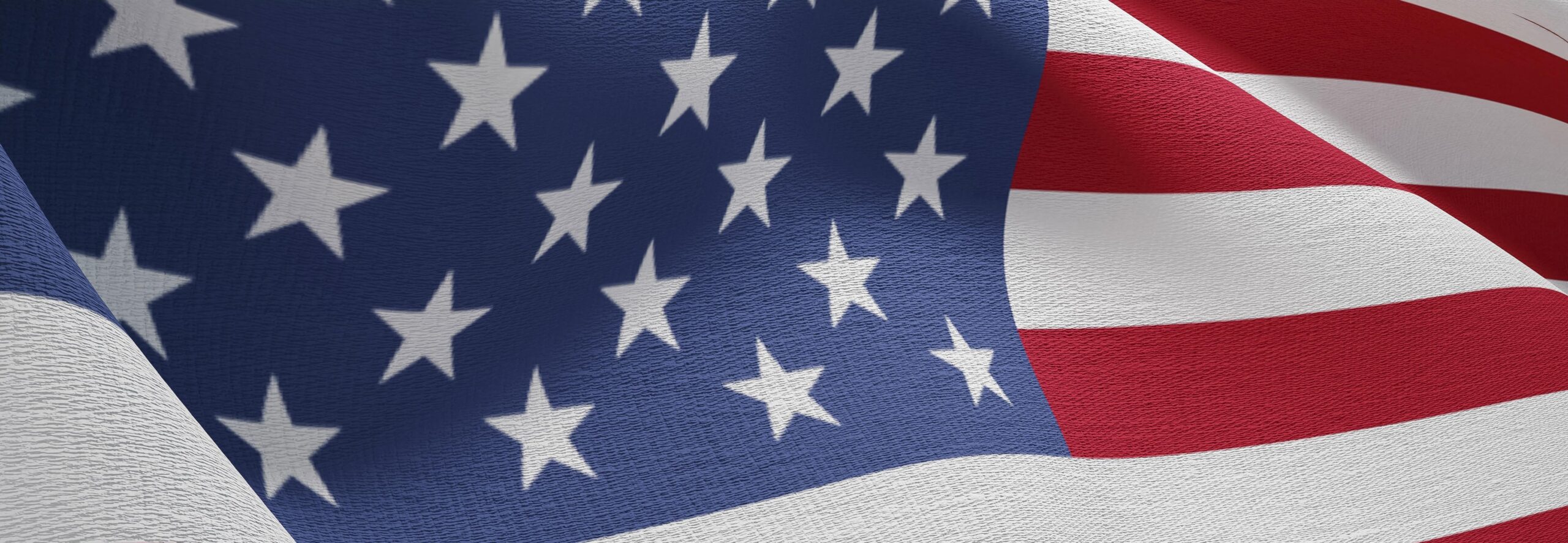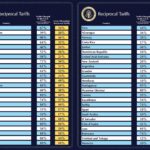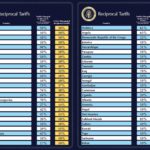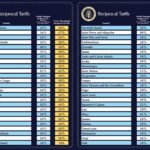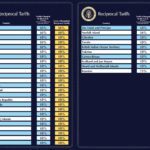US President Donald Trump unveiled the full list of reciprocal tariffs at the White House in Washington DC overnight.
Among the notable targets was a 34 per cent tariff on China imports (Fiji received a 32 per cent tariff), 20 per cent on the European Union, 24 per cent on Japan — and 10 per cent on Australia’s sub-Antarctic Heard and Macdonald Islands.
Notable absentees are Canada and Mexico (already subject to US tariffs) and Russia. A baseline tariff of 10 per cent applies to all countries unless specified otherwise, Trump says.
Business Council chief executive Bran Black says the tariffs will hurt economic growth but wants a measured response.
The federal government is currently in caretaker mode with a national election called for May 3.
“We don’t support retaliatory tariffs and strongly urge against them because there are no winners in a trade war, which would only risk making our situation worse by forcing Australians to pay more and reducing job security,” he says.
“As a trading nation, free and open access to global markets is critical for Australia, especially as one in every four of our nation’s jobs relies on trade.”
Black says his council will keep working on securing US exemptions with officials in Australia, Washington DC, and with government and opposition politicians here.
“The government, (US) Ambassador (Kevin) Rudd and our officials worked tirelessly behind the scenes – against great odds – and it’s clear these tariffs have been widely targeted.
“There are so many reasons why Australia should be exempt from any tariffs, including that the US has a trade surplus with us and the existence of long-standing cultural and military ties between our countries, especially now with the AUKUS agreement.”
Black says that as global uncertainty rises, Australia has to become a more competitive place to do business and attract investment.
“Australia should focus on controlling what is wholly within our power to control, and that means doing everything we can to be an attractive destination for global capital,” he says.

FARMERS FEDERATION
The National Farmers’ Federation (NFF) was also disappointed by the decision given the US-Australia FTA.
“This decision is a disappointing step backward for our nations and for the global economy,” NFF President David Jochinke said.
He says he spoke with Prime Minister Anthony Albanese to support his stance on not countering with more tariffs and for the defence of Australia’s science-based biosecurity protocols.
“Australian producers are resilient in the face of challenges. Being among the least subsidised farmers in the world has seen the sector become highly efficient and productive,” he says.
“While this decision creates unnecessary uncertainty, we remain confident in the strength of Australian agriculture. Our products are sought after worldwide for their quality, sustainability, and reliability.”
He says the NFF welcomes $50 million in funding by government to help affected sectors diversify markets.
EUROPEAN REACTION
The European Union will react with tariffs of its own, says Bernd Lange, chairman of the European Parliament’s international trade committee.
“The EU will respond. We will do so through legal, legitimate, proportionate and decisive measures,” he says.
“We are not backing down. We will defend our sovereignty and we will not change legislation that we have shaped democratically and in the interest of EU citizens, even if this displeases some US billionaires,”
He also called for a united global response by targeted countries and warns that the inevitable escalation will send the global economy into a downward spiral.
“Because of this decision, US consumers will be forced to carry the heaviest burden in a trade war. These tariffs will only make processes and manufacturing more inefficient,” he says.
“They have prompted damaging uncertainty in the investment climate. Stock markets could hardly be clearer in their reactions.”

